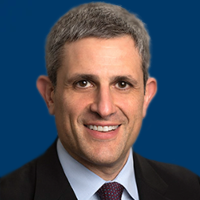Video
Dr. Borgen on Precision Medicine in Breast Cancer
Author(s):
Patrick Borgen, MD, chair, Department of Surgery, director, Breast Cancer, Maimonides Medical Center, discusses the implementation of precision medicine in breast cancer.
Patrick Borgen, MD, chair of the Department of Surgery and director of the Breast Cancer Program at Maimonides Medical Center, discusses the importance of precision medicine in breast cancer.
Although oncologists will have different interpretations of what the term “precision medicine” means in practice, the concept is definitely one that can benefit patients. Borgen says that in his opinion, the term can be defined as a way to decrease the overtreatment of patients with breast cancer.
The TAILORx trial, which was discussed at the 2018 ASCO Annual Meeting, is a perfect example of precision medicine making its way into this space, according to Borgen. Data from this trial suggested that by applying the precision medicine concept in patients with estrogen receptor-positive, HER2-negative, node-negative breast cancer—a large subset of breast cancer—unnecessary chemotherapy can be decreased by up to 70%.
This is a step in the right direction, Borgen says. The space has come a long way since the 1990s, when every patient with a 1 cm breast mass would be treated with intensive cytotoxic chemotherapy, he adds. It is important for oncologists to recognize which patients will derive benefit from chemotherapy—or any treatment strategy—before administering it.









